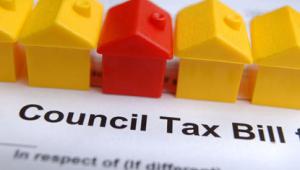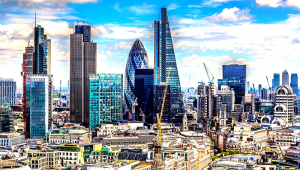By David Williams
5 November 2009
Authorities in London are making early pledges to freeze or even cut council tax to help residents cope with the effects of the recession.
All eight Labour-controlled borough councils, along with Conservative London Mayor Boris Johnson, have promised not to raise council tax, while Tory-controlled Hammersmith & Fulham is to cut its precept by 3%.
A Local Government Association spokesman said: ‘Councils are looking to keep bills as low as possible. Inflation is extremely low, and councils recognise we are in a deep recession and don’t want to add to people’s burdens more than is necessary.’
However, he emphasised that it was up to councils to set tax levels themselves. ‘That’s the beauty of local democracy. Some will feel they need to raise revenues to support residents and businesses in a different way. But clearly councils are aware of the difficult position local people and businesses are in.’
Next year, Hammersmith & Fulham’s Band D council tax rate is set to be £105 lower than in 2006/07. But leader Stephen Greenhalgh told Public Finance he was not confident he could continue the reductions beyond 2010.
‘We have rolled the clock back to 2002,’ he said. ‘But we are not confident we can continue doing that and continue delivering better services.
‘We don’t know what our funding settlement will be after the general election, so we don’t know if this will be the last one.’
Greenhalgh highlighted the example of his ‘mentors’, the borough of Wandsworth, whose Band D rate is half that of Hammersmith & Fulham.
‘We don’t have the structural finances to match them yet,’ he said. ‘We inherited a ballooning debt. We intend to eradicate it, but that takes a generation of sound public administration.’
The borough has reduced overall debt from £160m to under £140m in four years.
Greenhalgh said many savings had been made by controlling staff budgets but more could be achieved by using property more efficiently, integrating services and ‘commercialisation’.
‘I believe public services have to save money but the other area people often forget is they have to make money,’ he said. Charging for services was a ‘bona fide’ way of funding local government, to prevent the majority of people paying for services that only a few use, he said.
Greenhalgh contrasted charging with the ‘regressive’ council tax, which he said ‘hits people on low incomes the worst’.
Hammersmith & Fulham has been held up by Conservative shadow chancellor George Osborne as an exemplar of good financial practice, and Greenhalgh heads Conservative leader David Cameron’s councils innovation unit.
But the borough has attracted criticism for its proposals to shake up social housing, cut social care and raise charges on services for the most needy, such as meals on wheels.
A survey of 81 councils published today predicted a national average council tax rise of 1.6%.
5 November 2009
Authorities in London are making early pledges to freeze or even cut council tax to help residents cope with the effects of the recession.
All eight Labour-controlled borough councils, along with Conservative London Mayor Boris Johnson, have promised not to raise council tax, while Tory-controlled Hammersmith & Fulham is to cut its precept by 3%.
A Local Government Association spokesman said: ‘Councils are looking to keep bills as low as possible. Inflation is extremely low, and councils recognise we are in a deep recession and don’t want to add to people’s burdens more than is necessary.’
However, he emphasised that it was up to councils to set tax levels themselves. ‘That’s the beauty of local democracy. Some will feel they need to raise revenues to support residents and businesses in a different way. But clearly councils are aware of the difficult position local people and businesses are in.’
Next year, Hammersmith & Fulham’s Band D council tax rate is set to be £105 lower than in 2006/07. But leader Stephen Greenhalgh told Public Finance he was not confident he could continue the reductions beyond 2010.
‘We have rolled the clock back to 2002,’ he said. ‘But we are not confident we can continue doing that and continue delivering better services.
‘We don’t know what our funding settlement will be after the general election, so we don’t know if this will be the last one.’
Greenhalgh highlighted the example of his ‘mentors’, the borough of Wandsworth, whose Band D rate is half that of Hammersmith & Fulham.
‘We don’t have the structural finances to match them yet,’ he said. ‘We inherited a ballooning debt. We intend to eradicate it, but that takes a generation of sound public administration.’
The borough has reduced overall debt from £160m to under £140m in four years.
Greenhalgh said many savings had been made by controlling staff budgets but more could be achieved by using property more efficiently, integrating services and ‘commercialisation’.
‘I believe public services have to save money but the other area people often forget is they have to make money,’ he said. Charging for services was a ‘bona fide’ way of funding local government, to prevent the majority of people paying for services that only a few use, he said.
Greenhalgh contrasted charging with the ‘regressive’ council tax, which he said ‘hits people on low incomes the worst’.
Hammersmith & Fulham has been held up by Conservative shadow chancellor George Osborne as an exemplar of good financial practice, and Greenhalgh heads Conservative leader David Cameron’s councils innovation unit.
But the borough has attracted criticism for its proposals to shake up social housing, cut social care and raise charges on services for the most needy, such as meals on wheels.
A survey of 81 councils published today predicted a national average council tax rise of 1.6%.




















